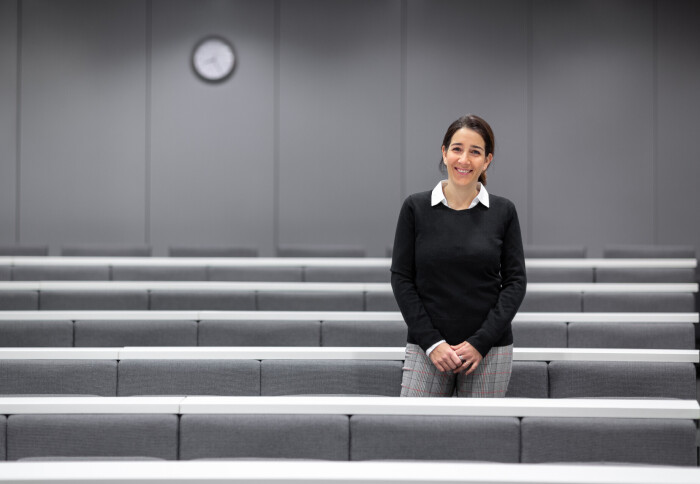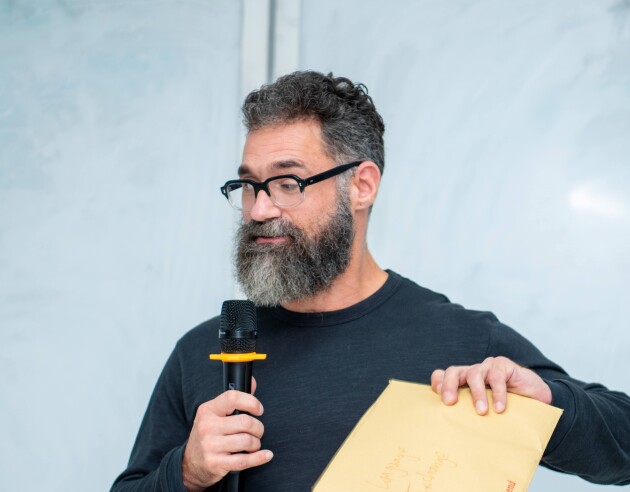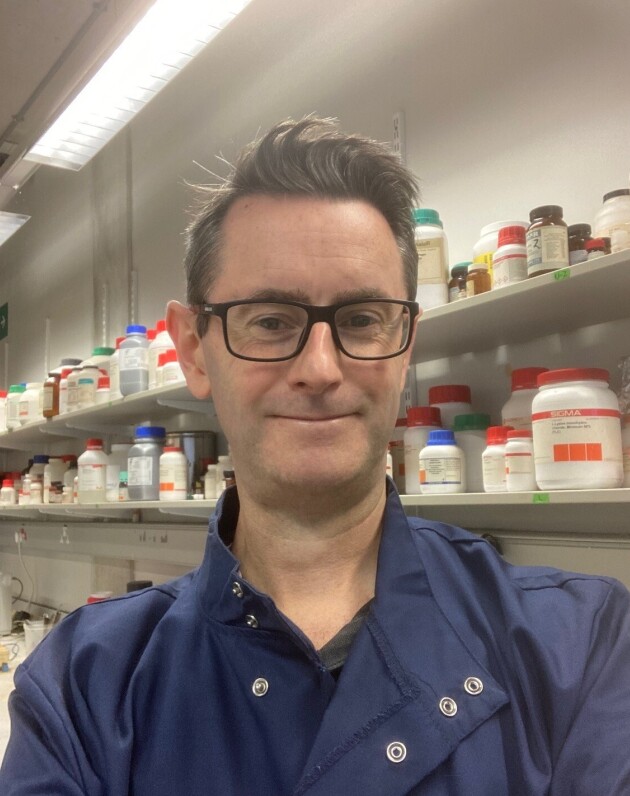Imperial celebrates over 180 staff promotions
by Gordon Short

Claudia Custodio, Department of Finance, has been promoted to Professor of Finance
Staff across Imperial are celebrating over 180 promotions in academic and learning and teaching roles.
This annual promotion round recognises 130 academics from the Business School and the Faculties of Engineering, Medicine and Natural Sciences being promoted into roles as Senior Lecturers, Readers, and Professors. In addition, 40 colleagues are also celebrating progressing into Senior and Principal Teaching Fellow roles.
Provost Professor Ian Walmsley CBE said: “My congratulations to all colleagues who have received promotions this year. Your talent and dedication is what makes Imperial one of the top universities in the world and provides such a rich environment for students to learn and develop in. You should all be immensely proud of your achievements.”
You can read the full list of promotions. Below we speak to some of the newly promoted staff.
Claudia Custodio, Department of Finance – promoted to Professor of Finance
I specialise in corporate finance, focusing on how financial managers and chief executives make decisions within firms and the subsequent impact on performance. My curiosity lies in understanding how their backgrounds influence these decisions and the market frictions they encounter. Recently, my research has delved into Small and Medium-sized Enterprises (SMEs), which often face significant challenges in accessing financial markets.
Imperial stands at the cutting edge of innovative research across various fields. This environment offers unparalleled opportunities to collaborate with top researchers and contribute to groundbreaking work. The diverse and vibrant community here fosters an inclusive and inspiring atmosphere. I am deeply aligned with our mission of “Science for Humanity” and believe that universities can be a powerful force for good in the world through their research and teaching activities.
Being promoted to Professor is a significant milestone, representing peer recognition for my contributions to research and teaching. On a personal level, it allows me to continue pursuing my passions for research and teaching, which are the core of my academic career.
I aspire to contribute to our shared goal of advancing “science for humanity” through my research and teaching. Universities, as centers of knowledge and innovation, have a unique responsibility to drive positive change. By fostering critical thinking and pioneering research, they can address some of the world’s most pressing challenges. I am committed to being an active part of this transformative journey.
John Pinney, Graduate School – promoted to Senior Teaching Fellow

I am part of the Graduate School’s Research Computing and Data Science team. My primary focus is on designing, developing, and delivering our comprehensive data science curriculum, which spans from basic programming to advanced machine learning. I collaborate with a dedicated team of Teaching Fellows, Graduate Teaching Assistants, and other tutors to ensure high-quality training. Additionally, I engage in various student-focused activities, including the Global Fellows Programme, Thesis Writing Retreat, and the Interdisciplinary Research Computing module for I-Explore. The diversity of these tasks aligns perfectly with my interests.
In 2008, I was honored with a University Research Fellowship from the Royal Society, which brought me to Imperial’s Department of Life Sciences to continue my research in bioinformatics and systems biology. By 2019, my passion for teaching led me to transition to the Graduate School as a Teaching Fellow.
This promotion is a testament to our team’s dedication to providing exceptional training for Imperial’s research community. It is gratifying to see our hard work acknowledged and celebrated.
In October, the Graduate School and the Postdoc and Fellows Development Centre will merge to form the Early Career Researcher Institute (ECRI) and I am thrilled to contribute to shaping the integrated research training and support for all early career researchers at Imperial, from postgraduate research students through to Fellows. This new chapter presents an exciting opportunity to influence the development of the next generation of researchers so look out for more communications about ECRI in the coming weeks.
Andrew Edwards, Department of Infectious Disease – promoted to Reader

My research aims to understand how antibiotics work, why they sometimes fail, and how to enhance their efficacy, particularly within the host environment. Antimicrobial resistance (AMR) poses a significant challenge to modern medicine. I am inspired by the interdisciplinary collaboration aimed at tackling this issue. My goal is to deepen our understanding of AMR mechanisms and leverage this knowledge to develop new therapeutics, vaccines, and materials that promote health and well-being.
At Imperial, I have collaborated on various projects addressing antibiotic resistance, working with colleagues from the Departments of Chemistry, Life Sciences, Bioengineering, and the local NHS trust. A key focus is the Gram-negative cell envelope, crucial for antibiotic resistance due to its efficiency in keeping drugs out. We are exploring ways to disrupt this envelope and target the machinery that maintains it to develop new therapeutics.
Teaching on various courses has been a rewarding experience, thanks to the intelligence and dedication of our students. It is gratifying to witness their transition from consuming knowledge to generating it, as they actively contribute to research programmes.
My passion for science was ignited by my father, a chemist at Eli Lilly. My interest in infectious diseases grew during my A-Levels, influenced by the prevalence of pathogens like HIV and MRSA in the news, before studying at University College London and a PhD at the University of Bristol. Prior to joining Imperial my postdoctoral research took me to the University of Minnesota, Novartis Vaccines in Italy, and the University of Bath.
I am thrilled to be promoted to Reader, a recognition of the tremendous support from colleagues, students, friends, and family that has propelled my career. I look forward to continuing my contributions to the department, especially as it embarks on a new phase at the South Kensington Campus, including my new role as Deputy Head of the Section of Molecular Microbiology.
Aruna Sivakumar, Department of Civil and Environmental Engineering - promoted to Professor
 My research delves into consumer behavior and preferences, with a focus on developing mathematical models to analyze the impacts of different policy scenarios. An area that I’m working on is investigating the factors influencing electric vehicle (EV) adoption among households and businesses. I design surveys to gather quantitative data on their preferences and use this data to create micro-econometric models of EV adoption and usage. These models predict the EV demand in response to different policies and forecast the spatio-temporal demand for vehicle charging infrastructure. This research not only informs government policy but also aids in developing new products and services based on a deep, quantitative understanding of consumer demand. For example, our EV adoption models have been integrated into a business model for a battery swapping service in Kenya.
My research delves into consumer behavior and preferences, with a focus on developing mathematical models to analyze the impacts of different policy scenarios. An area that I’m working on is investigating the factors influencing electric vehicle (EV) adoption among households and businesses. I design surveys to gather quantitative data on their preferences and use this data to create micro-econometric models of EV adoption and usage. These models predict the EV demand in response to different policies and forecast the spatio-temporal demand for vehicle charging infrastructure. This research not only informs government policy but also aids in developing new products and services based on a deep, quantitative understanding of consumer demand. For example, our EV adoption models have been integrated into a business model for a battery swapping service in Kenya.
Beyond transport and energy, I also study consumer responses to sustainable and active transport modes and analyse their implications for health and well-being. Additionally, I research methods for gathering and analyzing behavioral response data. My teaching complements my research, as I deliver MEng and MSc courses on transport planning and policy, as well as methods for analyzing demand data.
I’m originally from India, where I completed my undergraduate degree in civil engineering before pursuing an MSc and PhD in civil engineering, with a specialisation in transportation, engineering at the University of Texas, Austin. After a brief postdoctoral stint at UT Austin, I ventured into policy analysis with RAND Europe in Cambridge, UK. I enjoyed my time at RAND but my passion for research drew me back to a part-time postdoctoral position at Imperial. The opportunity to apply my PhD-developed methods to the emerging interdisciplinary field of transport and energy was particularly exciting, and I haven’t looked back since.
Being promoted to Professor is a tremendous honor. Regardless of how much you love your work or how productive you’ve been, it’s incredibly gratifying to have your efforts recognised and appreciated. This promotion motivates me to delve deeper into stimulating research questions while also encouraging me to step back and consider the broader picture. Are there connections I’ve missed by focusing too narrowly on details? How can I make my research more impactful in addressing climate change equitably? Can I anticipate future transport-energy pathways and innovate accordingly?
This promotion also allows me to reflect on my career path and share insights to inspire the next generation of female academics. For example, as a visiting professor at the Indian Institute of Science (IISc) in Bangalore, I recently engaged with female PhD students in the civil engineering department which was an incredibly rewarding experience. Academia needs more female perspectives, and if I can inspire young women to pursue influential research careers despite any challenges, I would consider my academic journey even more successful.
Article text (excluding photos or graphics) © Imperial College London.
Photos and graphics subject to third party copyright used with permission or © Imperial College London.
Reporter
Gordon Short
Communications Division